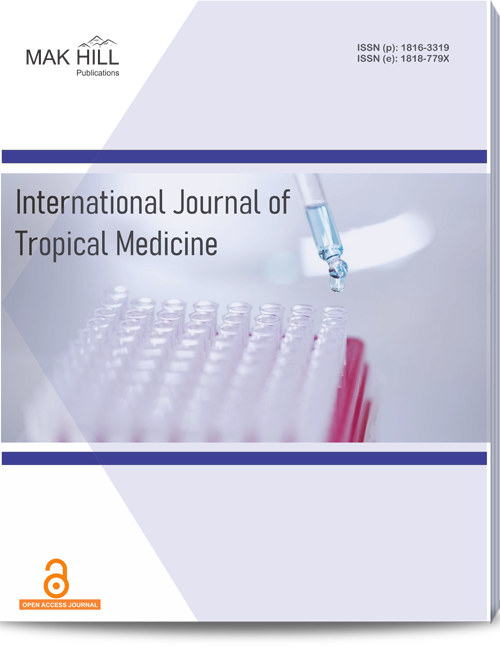
International Journal of Tropical Medicine
ISSN: Online 1818-779XISSN: Print 1816-3319
Abstract
Traumatic brain injury (TBI) is a leading cause of morbidity and mortality and is a major public health issue. It has been suggested that electrocardiography (ECG) can be used as an inexpensive tool to identify high‐risk patients who are at risk of developing cardiac dysfunction following TBI. 15 It has been unclear why ECG changes were, in fact, independently associated with the outcome of brain injuries. In the present article, we report our experience with the incidence of electro cardiographic changes in patients with TBI patients and their correlation with overall outcome. This analytical retrospective study involved Prior Consent from the patients and was found to be within ethical standards. All the patients who were admitted with the diagnosis of TBI under neurosurgery were included in the study. After obtaining the approval from Hospital Authorities / MS, data were retrieved from the case records of the patients in a predesigned pro forma. The details regarding age, gender, any history of hypertension and diabetes mellitus were collected. A total of 100 patients / case sheets were included in the study and the same number of admission ECGs was available for interpretation. The mean age was 36.69 years (minimum 2 years, maximum 74 years, standard deviation 14.72.) Mild head injury was most common (67%) followed by severe (18%) and moderate (15%) head injuries. Most of the patients had serum sodium and potassium in normal range (75% and 64%, respectively). ECG results were normal in 90 patients and were abnormal in 10 patients. Statistical analysis showed that the correlation among severity of the head injury, ECG results and outcome was significant. There was no significant correlation between QTc and outcome and correlation between severity of head injury and outcome. Neurogenic cardiac injury and associated electro cardiographic abnormalities can be associated with increased morbidity and mortality following TBI. The present study highlights the need to recognize the importance of ECG as a simple tool to identify the cardiovascular changes in patients with TBI.
How to cite this article:
Rupesh Kumar Verma and Vinod Ahuja. An Assessment of ECG changes in Cases with Traumatic Brain Injury and their Correlation with Outcome.
DOI: https://doi.org/10.36478/10.59218/makrjms.2024.1.115.119
URL: https://www.makhillpublications.co/view-article/1816-3319/10.59218/makrjms.2024.1.115.119